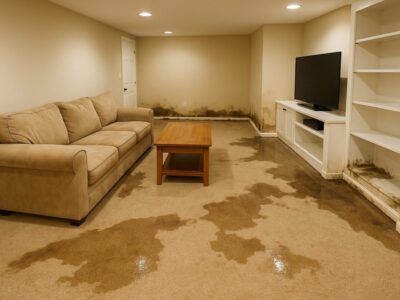The #1 Thing Most New Jersey Homeowners Miss With Home Insurance

Most New Jersey homeowners assume they understand what their insurance policy covers—until a loss happens. The truth is, many claims get denied or underpaid simply because policyholders overlook one of the most important sections of their policy: coverage limits and exclusions. This blog breaks down what you’re probably missing and how to avoid costly surprises.
Why Homeowners Rarely Read the Fine Print
Insurance policies are long, technical, and packed with legal jargon. It’s no wonder most people skim the declarations page and set it aside. The problem? That fine print spells out exactly what your insurance will and won’t pay for. Missing even one clause can mean thousands of dollars out of pocket.
The #1 Thing Most Homeowners Miss: Coverage Limits
Your policy doesn’t cover everything equally. Every type of property and risk has its own coverage limit—a maximum amount the carrier will pay. For example:
Personal property (contents): Often capped at a percentage of the dwelling limit.
Special categories (jewelry, electronics, art): Usually have low sub-limits unless you add endorsements.
Additional living expenses (ALE): Pays for hotels and meals after a loss, but only up to a set limit.
Many homeowners only discover these caps after a fire, theft, or flood—and by then, it’s too late.

Exclusions That Can Wreck Your Claim
Alongside limits, most policies contain exclusions that leave homeowners blindsided. Common examples include:
Flood damage – not covered under standard homeowners insurance.
Sewer or drain backups – usually excluded unless you buy separate coverage.
Wear and tear – carriers use this phrase to deny water, roof, and plumbing claims.
Ordinance or law coverage – older homes may not be covered for upgrades required by code.

Real-World Example
A Middlesex County homeowner suffered water damage when a sump pump failed. The cleanup cost over $20,000—but their policy only had $5,000 in sewer backup coverage. They thought “water damage” was covered across the board, but the sub-limit left them paying the majority of the bill.
How to Protect Yourself
Read your declarations page carefully. It summarizes key coverage and limits.
Ask about endorsements. Jewelry, basement water, and ordinance/law coverage often require add-ons.
Review annually. Coverage should keep up with rising construction costs and personal property values.
Document your belongings. A home inventory (with photos) can prove value and speed up claim payouts.

Conclusion
Insurance isn’t about what you think it covers—it’s about what the fine print actually says. The #1 mistake NJ homeowners make is assuming “covered means covered.” By understanding limits, exclusions, and endorsements, you can avoid costly gaps and protect your home the way you intended.
